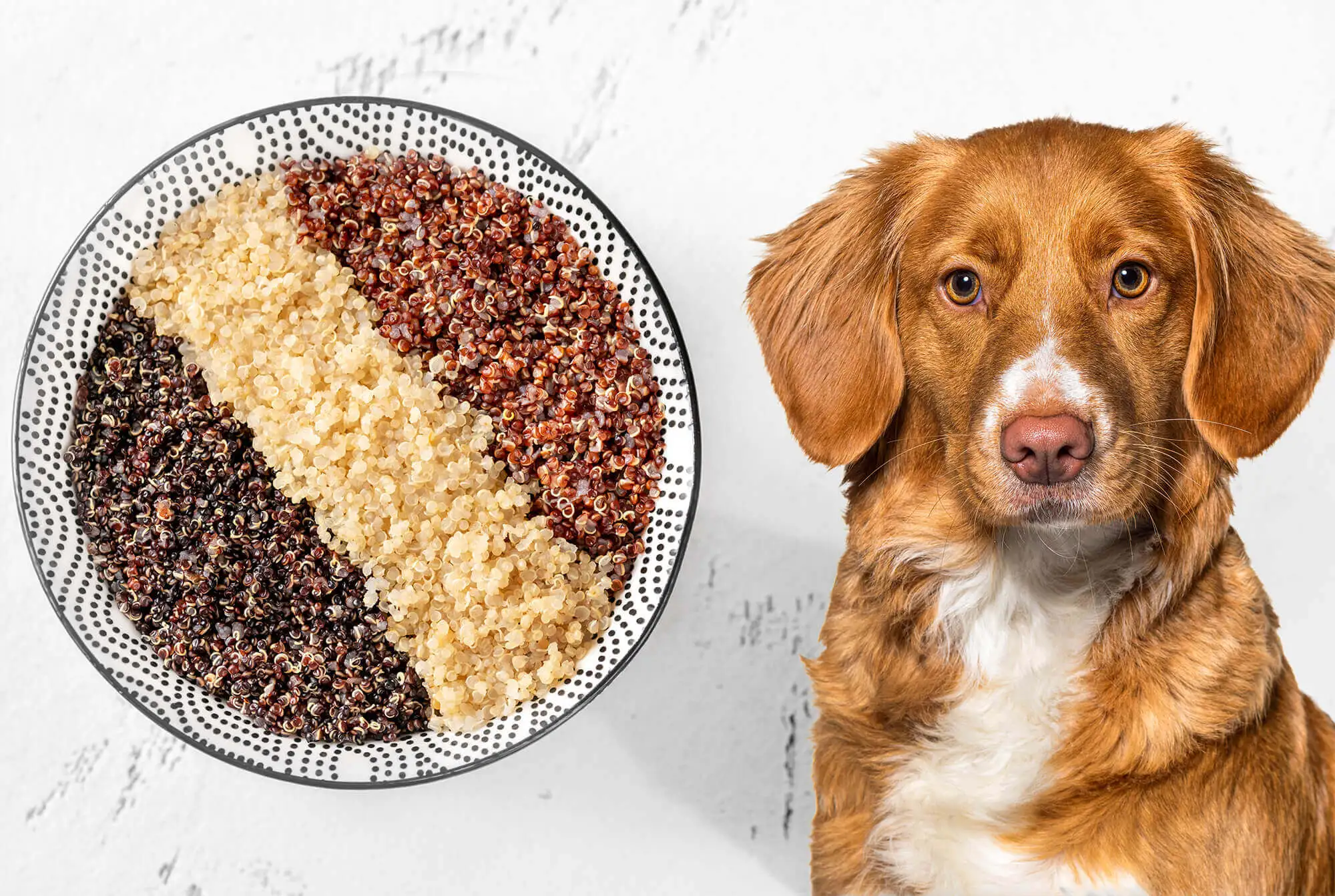Yes, dogs can eat quinoa, and it can even be a healthy addition to their diet when prepared properly. Quinoa is a nutrient-dense, gluten-free seed often considered a grain, and it has gained popularity in human diets due to its rich nutritional profile. But, as with any human food, it's essential to know how to introduce quinoa safely into your dog’s diet and understand any potential risks.
Nutritional Benefits of Quinoa for Dogs
Quinoa is packed with several nutrients that can benefit your dog’s health:
-
High Protein Content
- Quinoa is one of the few plant-based foods that contain all nine essential amino acids, making it a complete protein source. This makes it beneficial for muscle repair and growth in dogs, especially those with high energy levels.
-
Rich in Fiber
- The fiber in quinoa helps regulate your dog’s digestive system, promoting healthy bowel movements and preventing constipation.
-
Vitamins and Minerals
- Quinoa is a good source of several vitamins and minerals like magnesium, manganese, phosphorus, and folate, all of which contribute to overall health, including bone strength, nerve function, and cellular repair.
-
Low Glycemic Index
- Quinoa has a low glycemic index, which means it won’t cause a rapid spike in blood sugar levels. This can be beneficial for dogs prone to diabetes or those that need to maintain steady energy levels.
How to Safely Serve Quinoa to Your Dog
To ensure that quinoa is safe for your dog, follow these preparation guidelines:
-
Cook the Quinoa
- Always serve quinoa fully cooked. Raw or uncooked quinoa can be difficult for dogs to digest and may cause stomach discomfort. Rinse the quinoa thoroughly before cooking to remove saponins, natural compounds found on its outer layer that can cause digestive upset.
-
Serve Plain
- Do not add any seasonings, oils, butter, salt, or spices to the quinoa. These ingredients can be harmful to dogs, particularly spices like garlic or onion powder, which are toxic to dogs.
-
Introduce Gradually
- Start by giving your dog a small amount of quinoa to see how their stomach reacts. Some dogs may have sensitivities or food allergies, so introducing it gradually will help you determine if it suits your dog’s digestive system.
-
Mix with Regular Food
- Quinoa can be mixed with your dog’s regular food as a supplement to their balanced diet. Make sure it doesn’t replace essential proteins like meat or fish, as dogs still need animal protein as their primary nutrient source.
Potential Risks of Feeding Quinoa to Dogs
Although quinoa is generally safe for dogs, there are a few risks to keep in mind:
-
Digestive Upset
- Some dogs may have difficulty digesting quinoa, especially if it’s introduced too quickly or in large amounts. Watch for signs of digestive issues such as vomiting, diarrhea, or gas after feeding your dog quinoa.
-
Allergic Reactions
- While quinoa allergies are rare, it’s possible for dogs to have a food sensitivity or allergy to quinoa. Signs of an allergic reaction may include itching, excessive licking, or swelling. If you notice these symptoms, discontinue feeding quinoa and consult your vet.
-
Saponin Sensitivity
- Quinoa naturally contains saponins, which can irritate the digestive system of some dogs. Rinsing the quinoa before cooking can help remove most of the saponins, reducing the risk of irritation.
Conclusion
Quinoa can be a nutritious, protein-rich addition to your dog’s diet when cooked properly and served in moderation. It provides valuable nutrients like fiber, vitamins, and essential amino acids. However, as with any new food, it’s important to introduce quinoa gradually and monitor your dog for any signs of digestive discomfort or allergic reactions. Always consult your vet before making significant changes to your dog’s diet to ensure that quinoa fits well with their individual nutritional needs.
Takeaway Tips:
- Cook it first: Always serve quinoa fully cooked and unseasoned.
- Introduce slowly: Gradually add small amounts to your dog’s diet.
- Watch for reactions: Monitor for any digestive upset or allergies.
- Consult your vet: Always check with your vet before adding new foods to your dog’s diet.


